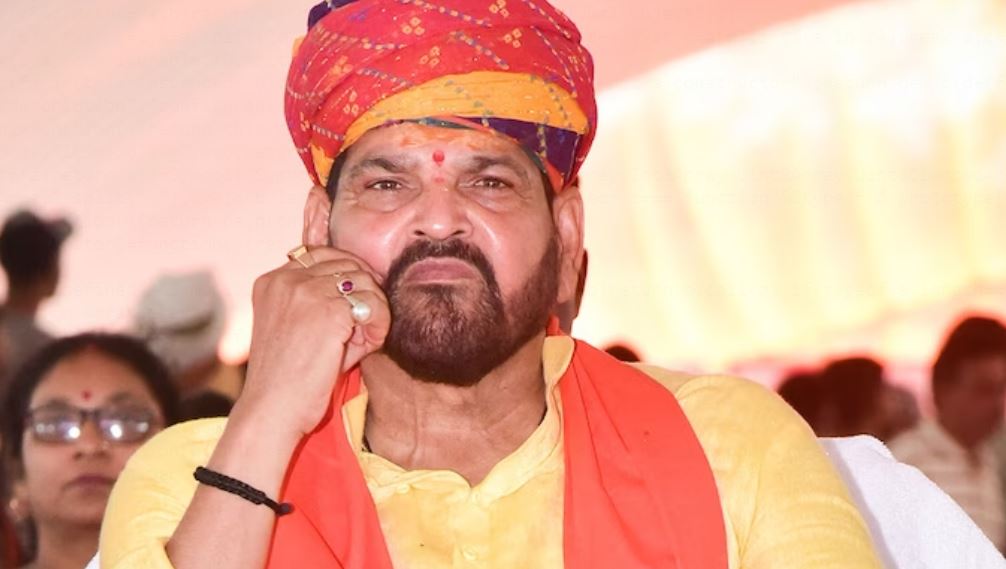On August 29, 2024, the Delhi High Court granted additional time to Brij Bhushan Sharan Singh, former chief of the Wrestling Federation of India (WFI) and ex-BJP Member of Parliament, to file his arguments for seeking the quashing of the FIR and charges against him in a high-profile sexual harassment case. The court’s decision to grant a two-week extension reflects the complexity of the case and Singh’s legal team’s ongoing efforts to challenge the proceedings. This article provides a detailed examination of the case, the legal arguments presented, and the implications of the court’s recent decision.
Background of the Case
The sexual harassment case against Brij Bhushan Sharan Singh stems from allegations made by several female wrestlers, who accused him of misconduct during his tenure as the head of the WFI. The case has garnered significant media attention and public interest due to Singh’s prominent political and sports affiliations.
The complaints, lodged by six women wrestlers, led to an FIR and subsequent legal proceedings. The trial court, after reviewing the complaints, framed charges against Singh based on the allegations of five of the six women, ruling that one complaint was time-barred. This decision underscored the seriousness with which the court was treating the case and highlighted the legal and procedural complexities involved.
Court’s Recent Decision
The Delhi High Court’s latest decision involves granting Singh two additional weeks to prepare and file his contentions for seeking the quashing of the FIR and charges. Justice Neena Bansal Krishna, who presided over the hearing, noted that Singh’s legal team required more time to compile a comprehensive short note addressing the various legal arguments for dismissing the charges and the FIR.
During the hearing, the court emphasized the need for a structured legal approach and questioned Singh’s strategy of filing a single petition to challenge multiple aspects of the case simultaneously. The court expressed concerns about the appropriateness of seeking an omnibus order that addressed all aspects of the case, including the framing of charges and the quashing of the FIR and charge sheet.
Arguments Presented
Singh’s legal team, led by advocate Rajiv Mohan, argued that the allegations against Singh lacked continuity and commonality, asserting that the complaints were motivated by a desire to remove him from his position as WFI chief. The defense contended that the charges were based on biased investigations and that the complaints were driven by personal vendettas rather than substantive evidence.
Mohan claimed that the allegations against Singh were part of a broader agenda to undermine his reputation and position. He argued that the trial court’s decision to frame charges was flawed and that the investigation failed to consider Singh’s version of events adequately.
In contrast, the prosecution, represented by senior advocate Rebecca John, argued that the complaints were well-founded and that the trial court’s decision to frame charges was based on a thorough examination of the evidence. John highlighted that the court had only considered the complaints of the five women whose allegations were not time-barred, indicating a deep and careful application of legal principles.
Implications of the Court’s Decision
The Delhi High Court’s decision to grant Singh additional time has several implications for the case:
- Extended Legal Proceedings: The extension allows Singh’s legal team more time to prepare their arguments, potentially leading to further delays in the case. This could affect the timeline for resolving the case and may impact the legal strategy of both parties.
- Scrutiny of Legal Strategy: The court’s questioning of Singh’s approach to challenging multiple aspects of the case highlights the importance of a clear and structured legal strategy. The decision underscores the need for precise and targeted legal arguments to address specific issues in complex cases.
- Impact on Public Perception: The ongoing legal proceedings and the court’s decision to grant additional time may influence public perception of the case. The extended timeline and the arguments presented by both sides are likely to attract media attention and public scrutiny, affecting how the case is perceived.
- Precedent for Similar Cases: The case against Singh could set a precedent for how sexual harassment cases involving high-profile individuals are handled in the legal system. The court’s decisions and the legal arguments presented may influence future cases with similar complexities.
Conclusion
The Delhi High Court’s decision to grant Brij Bhushan Sharan Singh additional time to file his contentions in the sexual harassment case reflects the complexities of the legal proceedings and the need for a thorough examination of the arguments presented. As Singh’s legal team prepares to submit their detailed arguments, the case continues to draw significant attention due to its high-profile nature and the serious allegations involved. The outcome of this case will have important implications for both the legal system and the broader public discourse on issues of sexual harassment and accountability.

Sunil Garnayak is an expert in Indian news with extensive knowledge of the nation’s political, social, and economic landscape and international relations. With years of experience in journalism, Sunil delivers in-depth analysis and accurate reporting that keeps readers informed about the latest developments in India. His commitment to factual accuracy and nuanced storytelling ensures that his articles provide valuable insights into the country’s most pressing issues.



